a/43/13 rev. page 3 wipo e a/43/13 rev. original: english date: september 17, 2007 world intellectual property o
A/43/13 Rev.
page 3
WIPO
E
A/43/13 Rev.
ORIGINAL: English
DATE: September 17, 2007
WORLD INTELLECTUAL PROPERTY ORGANIZATION
GENEVA
assemblies of the member states of wipo
Forty-Third Series of Meetings
Geneva, September 24 to October 3, 2007
REPORT OF the PROVISIONAL COMMITTEE ON PROPOSALS
RELATED TO A WIPO DEVELOPMENT AGENDA (PCDA)
prepared by the Secretariat
1 The WIPO General Assembly, in its session held in September‑October
2006, reviewed the positive discussions held during the two sessions
of the Provisional Committee on Proposals Related to a WIPO
Development Agenda (PCDA), emphasized the need to continue discussions
on the proposals submitted and placed in the six clusters during the
IIM/PCDA process, and decided, inter alia, to renew the mandate of the
PCDA for one year. It was also decided that the PCDA would hold two
five‑day sessions, in a manner that allowed for structured in‑depth
discussions, on all 111 proposals made during the sessions of the IIM
and PCDA in 2005 and 2006 respectively, taking into account the
decision of the 2005 General Assembly, on the deadline for submission
of new proposals. The General Assembly decided that in order to
facilitate the task and streamline the process for detailed
examination of all proposals in an inclusive manner, the PCDA should
undertake an exercise:
a.
to narrow down the proposals, in order to ensure that there is no
repetition or duplication;
b.
to separate the proposals, which are actionable, from those which
are declarations of general principles and objectives; and
c.
to note those proposals, which relate to existing activities in
WIPO and those, which do not.
In this regard, the Chair of the General Assembly was requested to
produce, in consultation with Member States, initial working
documents. It was also decided that the PCDA would report to the 2007
General Assembly, with recommendations for action on the agreed
proposals, and on a framework for continuing to address, and where
possible to move forward, on the other proposals following the 2007
General Assembly.
2 The third session of the PCDA, was held from February 19 to 23,
2007, and the fourth session from June 11 to 15, 2007. Ambassador C.
Trevor Clarke, Permanent Representative of Barbados, and Ambassador
Muktar Djumaliev, Permanent Representative of Kyrgyzstan, were Chair
and Vice‑Chair for both the sessions of the PCDA.
3 The third session of the PCDA was attended by 106 Member States and
48 Observers. The PCDA decided to admit, on an ad hoc basis, two
non‑accredited Non‑Governmental Organizations (NGOs), namely Yale
Information Society Project and Knowledge Ecology International,
without implications as to their status for future WIPO meetings. The
PCDA discussed the working document prepared by Ambassador Enrique A.
Manalo, Chair of the General Assembly, and decided to use it as a
working document of the PCDA (PCDA/3/2). The delegations expressed
their views on the proposals listed in the various clusters, in Annex
A of that document. After discussions, the PCDA agreed to a list of 24
proposals, contained in Annex 1 of document PCDA/3/3. However, the
Delegation of Colombia expressed its reservation in respect of
proposal 11 in Cluster B. It was also agreed that these proposals
would form a part of the final list of agreed proposals, to be
recommended for action to the 2007 General Assembly, after the June
2007 session of the PCDA. The Report of the third session is contained
in document PCDA/3/3.
4 The fourth session of the PCDA was attended by 93 Member States and
40 observers. The PCDA decided to admit, on an ad hoc basis, three
non‑accredited NGOs, namely, the Centre for International Governance,
School of Law, University of Leeds, United Kingdom; Institute for
Trade, Standards and Sustainable Development, United States of
America, and Global Economic Governance Programme, University of
Oxford, United Kingdom, without implications as to their status for
future WIPO meetings. The delegations expressed their views on the
proposals listed in the various clusters, in Annex B of document
PCDA/3/2, and agreed to a list of 21 proposals. The Report of the
fourth session is contained in document PCDA/4/3.
5 The following recommendations were agreed to by the Meeting:
“The PCDA decided to make the following recommendations to the 2007
General Assembly:
(a) To adopt the recommendations for action in the agreed proposals
contained in Annex I.
(b) To immediately implement the recommendations contained in the list
submitted by the Chair of the PCDA, in accordance with paragraph 61 of
the report of the fourth session of the PCDA.
(c) A Committee on Development and IP be established immediately to:
(i) develop a work‑program for implementation of the adopted
recommendations;
(ii) monitor, assess, discuss and report on the implementation of all
recommendations adopted, and for that purpose it shall coordinate with
relevant WIPO bodies;
(iii) discuss IP and development related issues as agreed by the
Committee, as well as those decided by the General Assembly.
(d) The Committee will be composed of the Member States of WIPO and
open to the participation of all accredited intergovernmental and
non‑governmental organizations. It will consider and adopt rules of
procedure based on the WIPO General Rules of Procedure at its first
meeting, which will be convened in the first half of 2008. The number
and duration of meetings of the Committee are to be decided by the
General Assembly.
(e) For the first meeting of the Committee, the present Chair of the
PCDA is requested to prepare initial working documents, including a
draft work program in consultation with Member States and the
Secretariat. The draft work program should address, inter alia, the
financial and human resources requirements for inclusion in WIPO’s
budgetary planning process.
(f) The Committee will report and may make recommendations annually to
the General Assembly.
(g) The PCIPD shall cease to exist and the mandate of the PCDA will
not be renewed.”
Annex I referred to in paragraph 5(a) is reproduced in the Annex to
the present document.
6 The WIPO General Assembly is invited to consider and approve the
proposal, as contained in paragraph 5 of this document.
7. The WIPO Conference is invited to consider and approve the proposal
relating to the Permanent Committee on Cooperation for Development
Related to Intellectual Property (PCIPD), as contained in paragraph
5(g) of this document.
[Annex follows]
CLUSTER A: TECHNICAL ASSISTANCE AND CAPACITY BUILDING
1.
WIPO technical assistance shall be, inter alia,
development‑oriented, demand‑driven and transparent, taking into
account the priorities and the special needs of developing
countries, especially LDCs, as well as the different levels of
development of Member States and activities should include time
frames for completion. In this regard, design, delivery mechanisms
and evaluation processes of technical assistance programs should
be country specific.
2.
Provide additional assistance to WIPO through donor funding, and
establish Trust‑Funds or other voluntary funds within WIPO
specifically for LDCs, while continuing to accord high priority to
finance activities in Africa through budgetary and extra‑budgetary
resources, to promote, inter alia, the legal, commercial,
cultural, and economic exploitation of intellectual property in
these countries.
3.
Increase human and financial allocation for technical assistance
programs in WIPO for promoting a, inter alia, development‑oriented
IP culture, with an emphasis on introducing intellectual property
at different academic levels and on generating greater public
awareness on IP.
4.
Place particular emphasis on the needs of SMEs and institutions
dealing with scientific research and cultural industries and
assist Member States, at their request, in setting‑up appropriate
national strategies in the field of IP.
5.
WIPO shall display general information on all technical assistance
activities on its website, and shall provide, on request from
Member States, details of specific activities, with the consent of
the Member State(s) and other recipients concerned, for which the
activity was implemented.
6.
WIPO’s technical assistance staff and consultants shall continue
to be neutral and accountable, by paying particular attention to
the existing Code of Ethics, and by avoiding potential conflicts
of interest. WIPO shall draw up and make widely known to the
Member States a roster of consultants for technical assistance
available with WIPO.
7.
Promote measures that will help countries deal with IP related
anti‑competitive practices, by providing technical cooperation to
developing countries, especially LDCs, at their request, in order
to better understand the interface between intellectual property
rights and competition policies.
8.
Request WIPO to develop agreements with research institutions and
with private enterprises with a view to facilitating the national
offices of developing countries, especially LDCs, as well as their
regional and sub‑regional IP organizations to access specialized
databases for the purposes of patent searches.
9.
Request WIPO to create, in coordination with Member States, a
database to match specific IP‑related development needs with
available resources, thereby expanding the scope of its technical
assistance programs, aimed at bridging the digital divide.
10.
To assist Member States to develop and improve national IP
institutional capacity through further development of
infrastructure and other facilities with a view to making national
IP institutions more efficient and promote fair balance between IP
protection and the public interest. This technical assistance
should also be extended to sub‑regional and regional organizations
dealing with IP.
11.
To assist Member States to strengthen national capacity for
protection of domestic creations, innovations and inventions and
to support development of national scientific and technological
infrastructure, where appropriate, in accordance with WIPO’s
mandate.
12.
To further mainstream development considerations into WIPO’s
substantive and technical assistance activities and debates, in
accordance with its mandate.
13.
WIPO’s legislative assistance shall be, inter alia,
development‑oriented and demand‑driven, taking into account the
priorities and the special needs of developing countries,
especially LDCs, as well as the different levels of development of
Member States and activities should include time frames for
completion.
14.
Within the framework of the agreement between WIPO and the WTO,
WIPO shall make available advice to developing countries and LDCs,
on the implementation and operation of the rights and obligations
and the understanding and use of flexibilities contained in the
TRIPS Agreement.
CLUSTER B: Norm‑setting, flexibilities, public policy and public
domain
15.
Norm‑setting activities shall:
*
be inclusive and member driven;
*
take into account different levels of development;
*
take into consideration a balance between costs and benefits;
*
be a participatory process, which takes into consideration the
interests and priorities of all WIPO Member States and the
viewpoints of other stakeholders, including accredited
inter‑governmental organizations and non‑governmental
organizations; and
*
be in line with the principle of neutrality of the WIPO
Secretariat.
16.
Consider the preservation of the public domain within WIPO’s
normative processes and deepen the analysis of the implications
and benefits of a rich and accessible public domain.
17.
In its activities, including norm‑setting, WIPO should take into
account the flexibilities in international IP agreements,
especially those which are of interest to developing countries and
LDCs.
18.
To urge the IGC to accelerate the process on the protection of
genetic resources, traditional knowledge and folklore, without
prejudice to any outcome, including the possible development of an
international instrument or instruments.
19.
To initiate discussions on how, within WIPO’s mandate, to further
facilitate access to knowledge and technology for developing
countries and LDCs to foster creativity and innovation and to
strengthen such existing activities within WIPO.
20.
To promote norm-setting activities related to IP that support a
robust public domain in WIPO’s Member States, including the
possibility of preparing guidelines which could assist interested
Member States in identifying subject matters that have fallen into
the public domain within their respective jurisdictions.
21.
WIPO shall conduct informal, open and balanced consultations, as
appropriate, prior to any new norm‑setting activities, through a
member‑driven process, promoting the participation of experts from
Member States, particularly developing countries and LDCs.
22.
WIPO’s norm‑setting activities should be supportive of the
development goals agreed within the UN system, including those
contained in the Millennium Declaration.
The WIPO Secretariat, without prejudice to the outcome of Member
States considerations, should address in its working documents for
norm‑setting activities, as appropriate and as directed by Member
States, issues such as: (a) safeguarding national implementation of
intellectual property rules (b) links between IP and competition (c)
IP‑related transfer of technology (d) potential flexibilities,
exceptions and limitations for Member States and (e) the possibility
of additional special provisions for developing countries and LDCs.
23.
To consider how to better promote pro‑competitive IP licensing
practices, particularly with a view to fostering creativity,
innovation and the transfer and dissemination of technology to
interested countries, in particular developing countries and LDCs.
CLUSTER C: Technology Transfer, Information and Communication
Technologies (ICT) and Access to Knowledge
24.
To request WIPO, within its mandate, to expand the scope of its
activities aimed at bridging the digital divide, in accordance
with the outcomes of the World Summit on the Information Society
(WSIS) also taking into account the significance of the Digital
Solidarity Fund (DSF).
25.
To explore IP‑related policies and initiatives necessary to
promote the transfer and dissemination of technology, to the
benefit of developing countries and to take appropriate measures
to enable developing countries to fully understand and benefit
from different provisions, pertaining to flexibilities provided
for in international agreements, as appropriate.
26.
To encourage Member States, especially developed countries, to
urge their research and scientific institutions to enhance
cooperation and exchange with research and development
institutions in developing countries, especially LDCs.
27.
Facilitating IP‑related aspects of ICT for growth and development:
Provide for, in an appropriate WIPO body, discussions focused on
the importance of IP‑related aspects of ICT, and its role in
economic and cultural development, with specific attention focused
on assisting Member States to identify practical IP‑related
strategies to use ICT for economic, social and cultural
development.
28.
To explore supportive IP‑related policies and measures Member
States, especially developed countries, could adopt for promoting
transfer and dissemination of technology to developing countries.
29.
To include discussions on IP-related technology transfer issues
within the mandate of an appropriate WIPO body.
30.
WIPO should cooperate with other intergovernmental organizations
to provide to developing countries, including LDCs, upon request,
advice on how to gain access to and make use of IP-related
information on technology, particularly in areas of special
interest to the requesting parties.
31.
To undertake initiatives agreed by Member States, which contribute
to transfer of technology to developing countries, such as
requesting WIPO to facilitate better access to publicly available
patent information.
32.
To have within WIPO opportunity for exchange of national and
regional experiences and information on the links between IP
rights and competition policies.
CLUSTER D: Assessment, Evaluation and Impact Studies
----------------------------------------------------
33.
To request WIPO to develop an effective yearly review and
evaluation mechanism for the assessment of all its
development‑oriented activities, including those related to
technical assistance, establishing for that purpose specific
indicators and benchmarks, where appropriate.
34.
With a view to assisting Member States in creating substantial
national programs, to request WIPO to conduct a study on
constraints to intellectual property protection in the informal
economy, including the tangible costs and benefits of IP
protection in particular in relation to generation of employment.
35.
To request WIPO to undertake, upon request of Member States, new
studies to assess the economic, social and cultural impact of the
use of intellectual property systems in these States.
36.
To exchange experiences on open collaborative projects such as the
Human Genome Project as well as on IP models.
37.
Upon request and as directed by Member States, WIPO may conduct
studies on the protection of intellectual property, to identify
the possible links and impacts between IP and development.
38.
To strengthen WIPO’s capacity to perform objective assessments of
the impact of the organization’s activities on development.
CLUSTER E: Institutional Matters including Mandate and Governance
-----------------------------------------------------------------
39.
To request WIPO, within its core competence and mission, to assist
developing countries, especially African countries, in cooperation
with relevant international organizations, by conducting studies
on brain drain and make recommendations accordingly.
40.
To request WIPO to intensify its cooperation on IP related issues
with UN agencies, according to Member States’ orientation, in
particular UNCTAD, UNEP, WHO, UNIDO, UNESCO and other relevant
international organizations, especially WTO in order to strengthen
the coordination for maximum efficiency in undertaking development
programs.
41.
To conduct a review of current WIPO technical assistance
activities in the area of cooperation and development.
42.
To enhance measures that ensure wide participation of civil
society at large in WIPO activities in accordance with its
criteria regarding NGO acceptance and accreditation, keeping the
issue under review.
43.
To consider how to improve WIPO’s role in finding partners to fund
and execute projects for IP‑related assistance in a transparent
and member-driven process and without prejudice to ongoing WIPO
activities.
44.
In accordance with WIPO’s member‑driven nature as a United Nations
Specialized Agency, formal and informal meetings or consultations
relating to norm‑setting activities in WIPO, organized by the
International Bureau, upon request of the Member States, should be
held primarily in Geneva, in a manner open and transparent to all
Members. Where such meetings are to take place outside of Geneva,
Member States shall be informed through official channels, well in
advance, and consulted on the draft agenda and program.
CLUSTER F: Other Issues
45.
To approach intellectual property enforcement in the context of
broader societal interests and especially development‑oriented
concerns, with a view that “the protection and enforcement of
intellectual property rights should contribute to the promotion of
technological innovation and to the transfer and dissemination of
technology, to the mutual advantage of producers and users of
technological knowledge and in a manner conducive to social and
economic welfare, and to a balance of rights and obligations”, in
accordance with Article 7 of the TRIPS Agreement.
[End of Annex and of document]
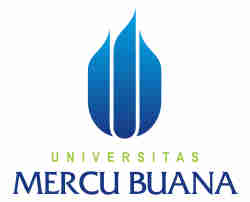 MODUL PERKULIAHAN 1 PENGENALAN KOMPUTER SEJARAH KOMPUTER PENGGOLONGAN KOMPUTER
MODUL PERKULIAHAN 1 PENGENALAN KOMPUTER SEJARAH KOMPUTER PENGGOLONGAN KOMPUTER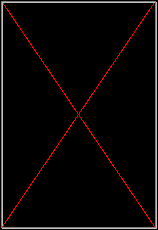 NOVELA DESPUÉS DEL 39 EL FINAL DE LA GUERRA
NOVELA DESPUÉS DEL 39 EL FINAL DE LA GUERRA BHARAT HEAVY ELECTRICALS LIMITED HEAVY POWER EQUIPMENT PLANT HYDERABAD
BHARAT HEAVY ELECTRICALS LIMITED HEAVY POWER EQUIPMENT PLANT HYDERABAD S ÍMBOLO COLOCAR EN MEDIO DE LAS HERMANAS
S ÍMBOLO COLOCAR EN MEDIO DE LAS HERMANAS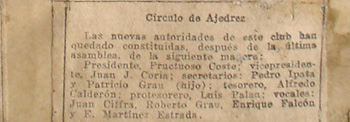 Ezequiel Martínez Estrada Ajedrecista Contexto Luego de la Exposición
Ezequiel Martínez Estrada Ajedrecista Contexto Luego de la Exposición O PHTHALMOLOGY TELEPHONE 0121 424 2000 I NFORMATION
O PHTHALMOLOGY TELEPHONE 0121 424 2000 I NFORMATION JESTING ABOUT 2 FREQUENTLY ASKED QUESTIONS WHAT IS BBC
JESTING ABOUT 2 FREQUENTLY ASKED QUESTIONS WHAT IS BBC PRESS RELEASE N° 12 FROM ALL OVER THE WORLD
PRESS RELEASE N° 12 FROM ALL OVER THE WORLD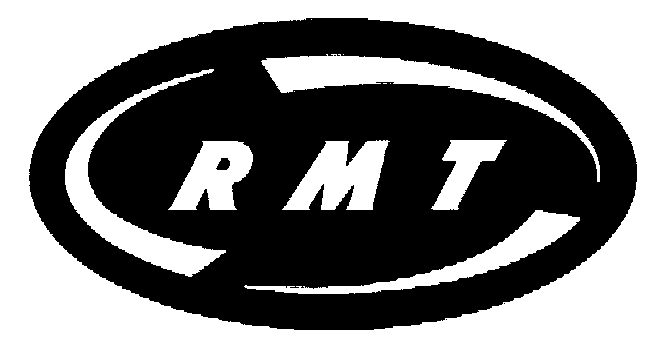 NATIONAL UNION OF RAIL MARITIME & TRANSPORT WORKERS NATIONAL
NATIONAL UNION OF RAIL MARITIME & TRANSPORT WORKERS NATIONAL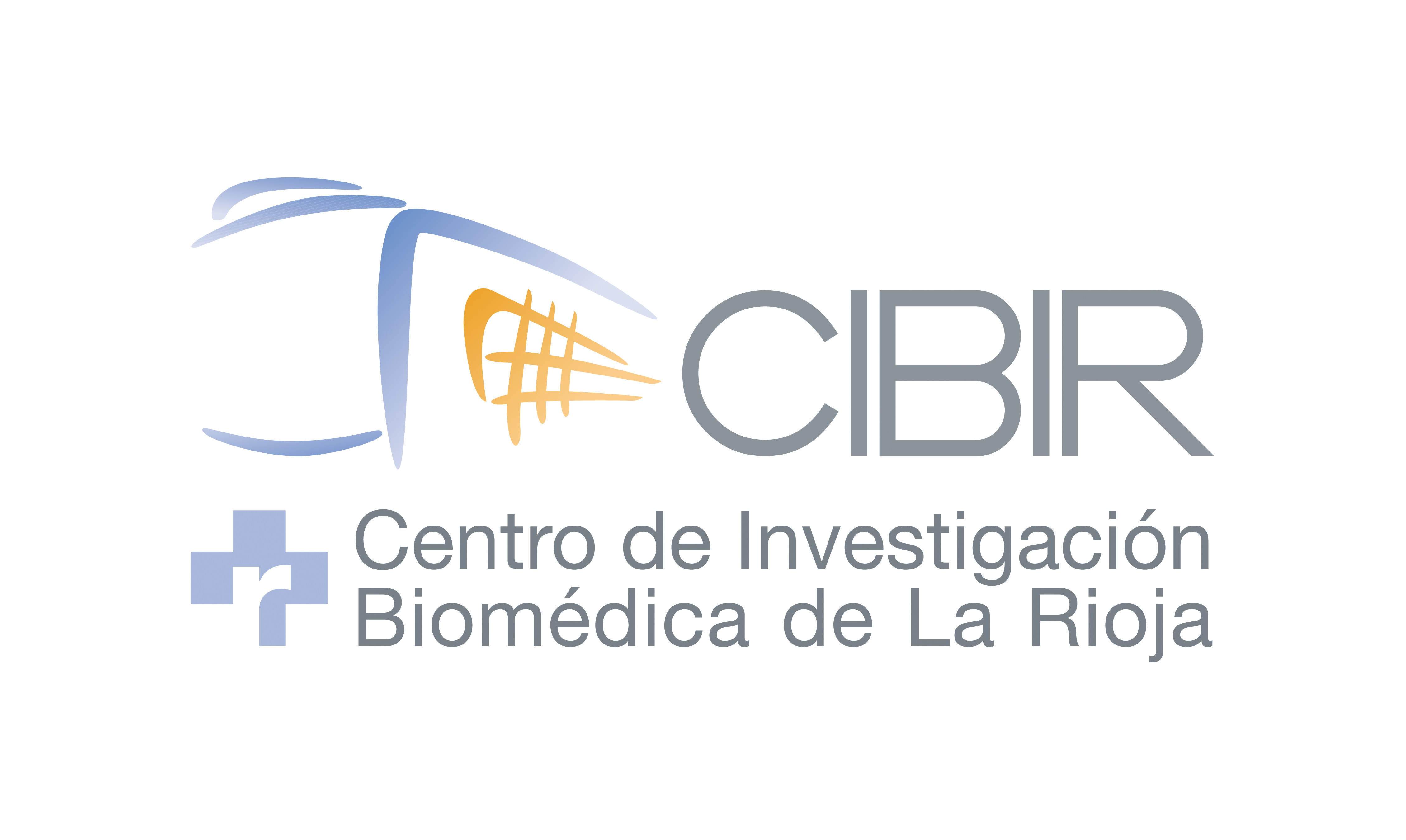 AUTORIZACIÓN DE FIRMA PARA SOLICITUD DE PEDIDOS JEFE
AUTORIZACIÓN DE FIRMA PARA SOLICITUD DE PEDIDOS JEFE MATERIAL TRANSFER AGREEMENT PARTIES THE ROYAL CHILDREN’S HOSPITAL (ABN
MATERIAL TRANSFER AGREEMENT PARTIES THE ROYAL CHILDREN’S HOSPITAL (ABN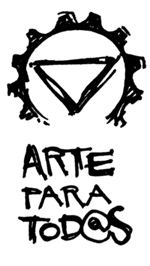 A RTE PARA TODOS MANIFIESTO POR LIBERTAD DE
A RTE PARA TODOS MANIFIESTO POR LIBERTAD DE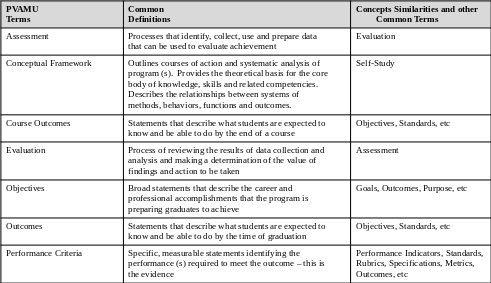 3 INSTITUTIONAL EFFECTIVENESS & ASSESSMENT MONOGRAPH A PRACTICAL GUIDE
3 INSTITUTIONAL EFFECTIVENESS & ASSESSMENT MONOGRAPH A PRACTICAL GUIDE